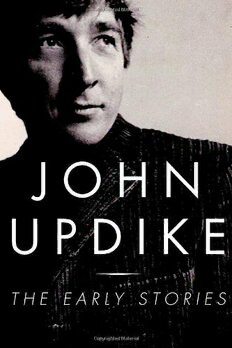
The Early Stories: 1953-1975 PDF
02003·0.841 MB·English
Most books are stored in the elastic cloud where traffic is expensive. For this reason, we have a limit on daily download.
Preview The Early Stories: 1953-1975
Description:
“He is a religious writer; he is a comic realist; he knows what everything feels like, how everything works. He is putting together a body of work which in substantial intelligent creation will eventually be seen as second to none in our time.”—William H. Pritchard, The Hudson Review, reviewing Museums and Women (1972)A harvest and not a winnowing, The Early Stories preserves almost all of the short fiction John Updike published between 1954 and 1975. The stories are arranged in eight sections, of which the first, “Olinger Stories,” already appeared as a paperback in 1964; in its introduction, Updike described Olinger, Pennsylvania, as “a square mile of middle-class homes physically distinguished by a bend in the central avenue that compels some side streets to deviate from the grid pattern.” These eleven tales, whose heroes age from ten to over thirty but remain at heart Olinger boys, are followed by groupings titled “Out in the World,” “Married Life,” and “Family Life,” tracing a common American trajectory. Family life is disrupted by the advent of “The Two Iseults,” a bifurcation originating in another small town, Tarbox, Massachusetts, where the Puritan heritage co-exists with post-Christian morals. “Tarbox Tales” are followed by “Far Out,” a group of more or less experimental fictions on the edge of domestic space, and “The Single Life,” whose protagonists are unmarried and unmoored.Of these one hundred three stories, eighty first appeared in The New Yorker, and the other twenty-three in journals from the enduring Atlantic Monthly and Harper’s to the defunct Big Table and Transatlantic Review. All show Mr. Updike’s wit and verbal felicity, his reverence for ordinary life, and his love of the transient world.
See more
The list of books you might like
Most books are stored in the elastic cloud where traffic is expensive. For this reason, we have a limit on daily download.
